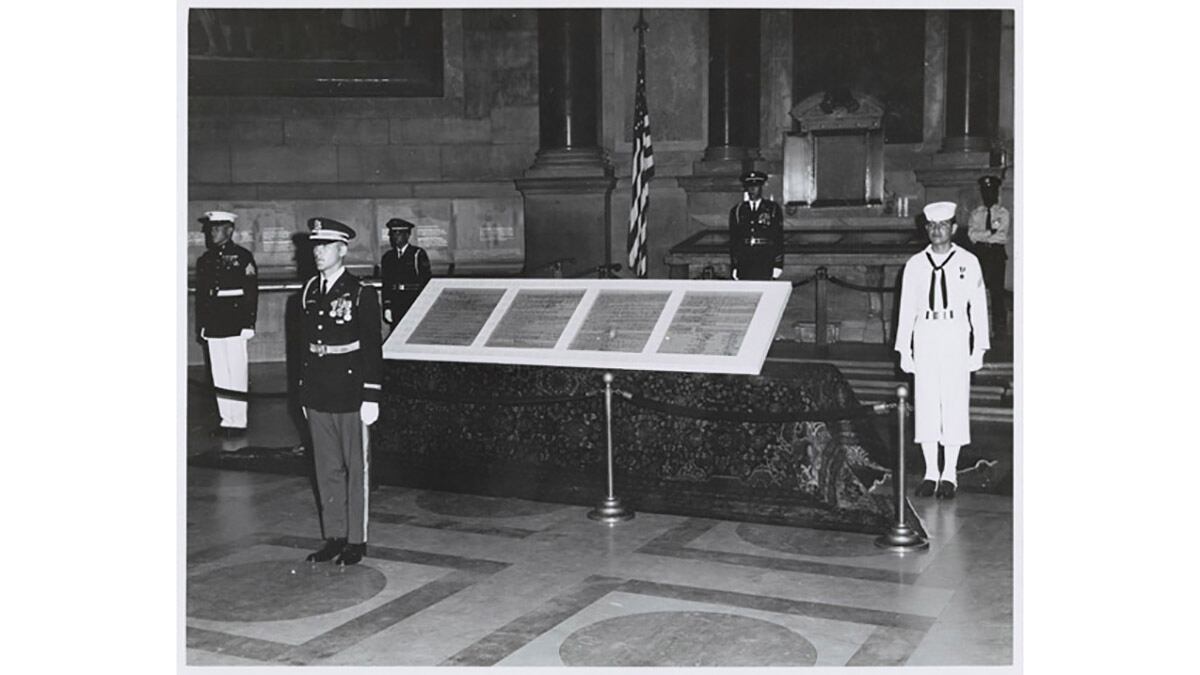Every American service member takes an oath to “support and defend the Constitution of the United States.” The oath is not to the country, the government, or the flag. It is to the Constitution.
But precious few service members truly know what that oath means because the military makes no effort to teach it. I speak from experience: I served in the Marine Corps for nine years, after which I attended law school, where it took only a few weeks before I had learned infinitely more about the Constitution than I learned during my nine years defending it.
The military spends billions of dollars educating service members about all manner of subjects. Yet most members of our military receive no education about the Constitution — the document we are sworn to defend. As we learned on Jan. 6, that oversight has consequences.
Jan. 6′s insurrection was littered with military veterans. Reports state that 20 percent of those who stormed the Capitol had military ties. While Congress was counting electoral votes — a solemn obligation specifically required by the Constitution — veterans assaulted the Constitution itself by storming the Capitol to undermine that solemn duty.
The Constitution is not open to interpretation regarding how electors are to be appointed and their votes to be counted. Its requirements regarding presidential elections are laid out with precision. Under Article II and the Twelfth Amendment, each state decides how to appoint electors; each state then counts its electors’ ballots, certifies the vote totals, and transmits them to Congress. All of this was done precisely as the Constitution requires.
But not before President Trump’s lawyers filed dozens of lawsuits in courts that were created pursuant to Article III of the Constitution. Finally, after those lawsuits failed, Congress met to fulfill its constitutional duty to count the electoral votes. The requirements are clear; they were followed to the letter. Yet despite all of this, a mob of “patriots” — including many who swore to defend the Constitution — invaded the Capitol to intimidate and potentially execute the vice president and members of Congress merely for carrying out their constitutional duties.
Again, this was a direct assault on the Constitution, born of a failure to understand and respect the Constitution.
What should members of our military know about the Constitution? They should be educated about its history and why the Founders chose to create a strong government that could hold the nation together, while also reserving certain powers to the states. They should understand where power rests among the three branches of government, and why each branch has the authorities that it does, particularly in foreign and military affairs, such as the fact that a president cannot wage war unilaterally without the support of the people’s representatives in Congress.

Further, because service members are required only to follow lawful orders, they should have a sense of what powers their commander in chief possesses under Article II, and the significance of Supreme Court rulings such as Youngstown Steel v. Sawyer, which confirm that a president’s commander-in-chief power is limited. And they should understand how the Constitution defines treason, and how that definition has been analyzed historically.
Such knowledge would give service members a greater understanding of what, precisely, they’re fighting for. And they would know where to turn to see if a president is correct if he claims, for example, that Article II gives him “the right to do whatever I want,” or that “the vice president has the power to reject fraudulently chosen electors.” (Both were claimed by President Trump; neither is true.) Service members who know these things might be less willing to participate in an insurrection based on false claims that the Constitution itself clearly invalidates.
As Tom Nichols of the U.S. Naval War College recently wrote in The Atlantic, Americans must become serious again. He defined seriousness as “the wisdom to know when to stop laughing and to pay attention, weigh our words, and consider our actions beyond the intemperate of our own impulses. It is to know the difference between what is real and what is imagined.”
The Constitution is real, as is the need for Americans who have sworn to defend it to understand it, to understand what they are defending. The military should institute courses to ensure that its service members, officer and enlisted, have a basic understanding of the Constitution — its history, our framework of government, the rights the Constitution protects, and the ways it both grants and limits governmental power.
We ask our service members to risk their lives to defend a document they do not understand. We owe it to them, and to the country, to teach them. When we do, we will likely have fewer veterans rising up against their government merely for doing what the Constitution requires.
Chris Dalton is a nine-year veteran of the United States Marine Corps. He currently serves as in-house counsel for a helicopter operations company and lives in Aledo, Texas, with his wife and two sons.
Editor’s note: This is an op-ed and as such, the opinions expressed are those of the author. If you would like to respond, or have an editorial of your own you would like to submit, please contact Military Times managing editor Howard Altman, haltman@militarytimes.com.





